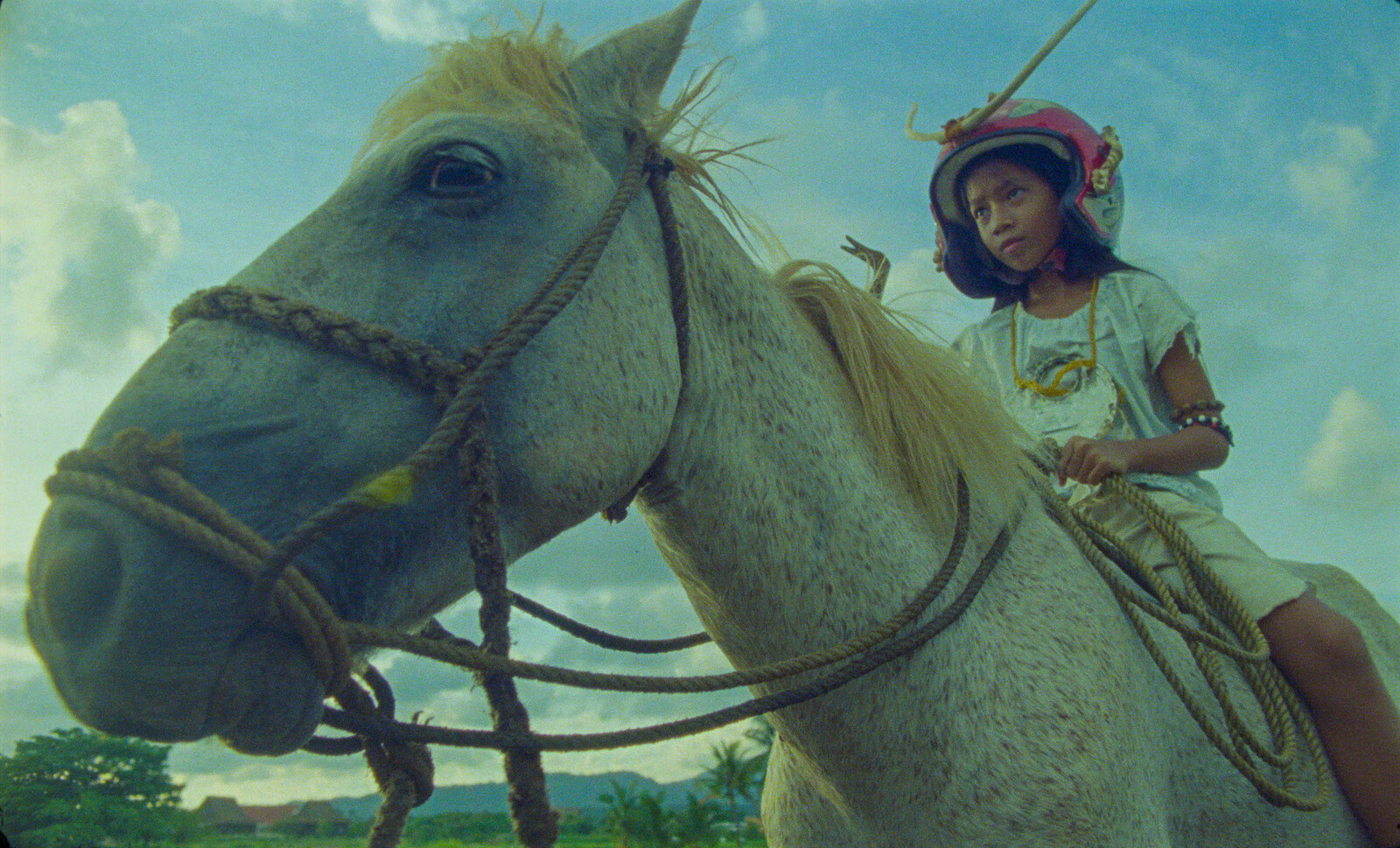The Boat People
September 2–October 29, 2023
Pulvertum, Oldenburg, Schloßwall
Katharinenstraße 23
D-26121 Oldenburg
Germany
Hours: Tuesday–Friday 2–6pm,
Saturday–Sunday 11am–6pm
T +49 441 2353208
info@edith-russ-haus.de
The Edith-Russ-Haus is pleased to present the video installation titled The Boat People by Tuấn Andrew Nguyễn in the Pulverturm (Powder Tower), which belongs to the former castle wall of Oldenburg and is the only remaining building of the fortifications of the city. Its history goes back to 1529, when Count Anton I (1505–1573) renewed the city’s military facilities. Since 1996, the Pulverturm has been used for cultural purposes during the summer months.
Set in an unspecified future at the precarious edge of humanity’s possible extinction, The Boat People follows a group of children led by a strong-willed and resourceful little girl, who travel the seas and collect the stories of a world they never knew through objects that survived through time.
Calling themselves The Boat People, the group finds objects amongst the ruins of human civilization, spread through the seas. They replicate objects that resonate with them in wood as a way to try and piece together a history they are trying to understand. They then burn the carvings for reasons that have long been forgotten.
The Boat People arrive in a place formerly known as Bataan and come into contact with the rich layers of intermingled histories and eras embedded in the coast. They encounter objects from a refugee crisis, a world war, and some of the earliest migrations in human history. The little girl encounters a mysterious statue head buried in the sand. They engage in a dialogue that not only explores concepts of a future and a past world through an existential lens, but also gives us a look into the reasons behind this group’s mysterious ritual of burning their beautifully hand-carved replicas.
The Boat People was produced in collaboration with Bellas Artes Projects in Bataan, Philippines. The production team was composed of cinematographer Andrew Yuyi Truong, research assistant Jane Pujols, 1st Camera Assistant Rhon Bacal, and the Bellas Artes Team. Nguyễn cast five children from the local fishing village in Bagac, Bataan as the main characters of the film. Making their film debut are Gryshyll Reyes Ilarina as Riana, Michael Mendoza Soronio, John Carlos Cruz Moris, Jescee Dheivid Taba Recinte, and Benedict Recinte Revelo. The film was shot in the different areas of Las Casas Filipinas de Acuzar, Mt. Samat, the Nuclear Powerplant Village, and the Phillippine Refugee Processing Center.
Tuấn Andrew Nguyễn’s practice explores the power of memory and its potential to act as a form of political resistance. His practice is fuelled by research and a commitment to communities that have faced traumas caused by colonialism, war, and displacement. Through his continuous attempts to engage with vanishing or vanquished historical memory, Nguyễn investigates the erasures that the colonial project has brought to bear on certain parts of the world. Through collaborative endeavors with various communities throughout the world, Nguyễn sets out to cultivate and empower these strategies enacted and embodied by his collaborators. Through this collaborative practice, he explores memory as a form of resistance and empowerment, emphasizing the power of storytelling as a means for healing, empathy and solidarity.
Nguyễn, based primarily in Saigon, works between various mediums but devotes much of his attention towards producing moving-image works and sculpture. Nguyễn’s intrigued with the relationship between narrative and objects leads him to make projects that combine moving image and sculpture - oftentimes many of his films begin with an object, such as destroyed memorials built by former refugees, or the skeletal remains of the last rhino in Vietnam for instance, and its story. Approaching memory as a phenomenon that is intangible and abstract, Nguyễn often thinks beyond the restrictions of time (past, present, future) which also gives way to thinking about supernaturalisms (ghosts, specters, hauntings) as political tools.
Opening times
Friday: 2–6pm
Saturday and Sunday: 11am–6pm
During Nacht der Museen (Night of the Museums), September 23: 11am–midnight



